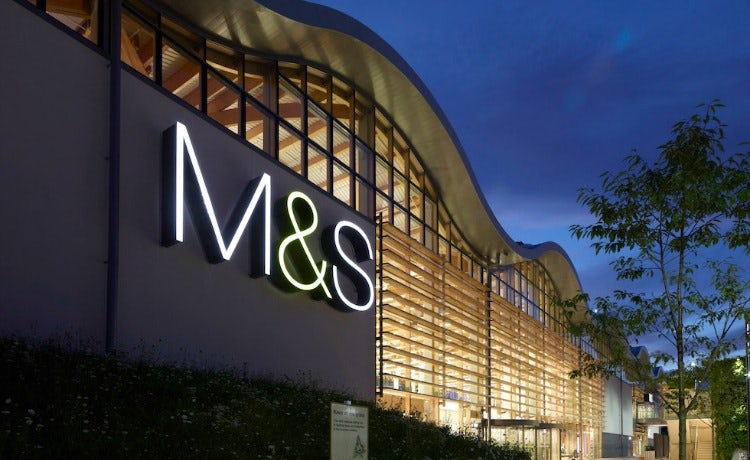Festival of Marketing day 2: M&S on being a ‘modern media company’ and Nestlé’s work with startups
As the Festival of Marketing has comes to a close, we round up all the highlights from day two, from M&S wanting to be a media company and Nestle working with startups to Malibu’s digital transformation and Starling Bank’s focus on problem solving.
M&S wants to be more like a ‘modern media company’
Marks & Spencer’s focus on personalised content, and the success it has achieved, means it now has its sights set on becoming a “modern media company” when it comes to distributing content, according to the brand’s director of customer loyalty, Nathan Ansell.
M&S sees the highest return on investment around targeted content and is therefore delivering a higher amount than it ever has before.
“It’s more personalised, it’s more frequent and we’re able to deliver it in real-time based on customers’ proximity to store,” said Answell.
He said the brand is seeing particular benefits around the launch of new products, as well as around targeted promotions.
As a result, the retailer is now focusing more on its publishing capabilities.
“Our view is that M&S should act more and more like a modern media company. We’ve built a publishing company in the business for that very reason. We’re really only just realising the value of our own communications channels and they are driving around eight million visits every week to M&S.com as a result of our personalised content.”
Nestlé on working with startups: ‘We had no choice’
As the world’s largest food and beverage company, pushing through change is no small feat. While it previously prided itself on “having all the answers”, it soon realised that in order to keep up with the outside world, it would have to look into creating more external partnerships.
“It can sometimes feel like running through treacle with a company our size. But we didn’t have a choice [with building external relationships]. Startups could become our competitors, so we had to get into bed with them,” said Gerardo Mazzeo, global innovation director at the company.
As a result, it decided to create an open innovation programme, called HENRi@Nestlé, in which it invites startups and entrepreneurs to solve challenges that the FMCG giant is facing. So far, it has set out to encourage women in Central and West Africa to set up their own businesses through its Maggi brand, but it’s also looking into the “future of plastic water bottles” by considering other options.
It is also looking to use HENRi for acellerating new product launches or services. Nestlé admits it is not “the most speediest” when it comes to product innovation, so it hopes the programme can reduce its lead times.
“We wanted to bring passion and innovation into our organisation, as we are a very big Swiss conservative company,” he said.
Malibu: To deliver digital transformation you need to sell it internally
To really drive digital transformation marketers need to make sure they bring the whole organisation along with them in the opinion of Colin Kavanagh, vice-president of marketing for Malibu and Kahlua at The Absolut Company.
Speaking on the Digital Transformation stage, Kavanagh advised marketers to share more detail about their digital projects, however early stage, in order to win the hearts and minds of the rest of the organisation. Reflecting on the success of Malibu’s internet connected cup and connected bottles, Kavanagh admits he could have talked the project up more among the wider business.
“We probably didn’t share this project enough internally and I think if you want to drive digital transformation you need to sell that internally, and you need to get the team more involved in that,” he said.
“One of the things we do now is share those projects even at an early stage with everybody in the organisation and that’s very empowering for everybody.”
Since adopting this approach Kavanagh has noted a positive change in internal perceptions around the Malibu brand, which he describes as “one of the biggest wins”.
He advises any marketer embarking on a digital transformation project to stay consumer centric, not get distracted by the tech and always be true to the brand.
“Sometimes the temptation is that you might have a great idea, but does it really fit with the brand and what you want to do? Also you need to make it a core part of the strategy. Don’t do it as an aside, because then it just becomes a side project,” Kavanagh added.
READ MORE: Malibu wants to banish British queuing tradition with internet-connected cup
Starling Bank on spending less time on marketing and more time on solving problems
Anne Boden, the founder of disruptive digital banking brand Starling Bank, used her Festival of Marketing speech on the Customer Experience stage to criticise marketers who fail to solve common customer bugbears.
Starling has no branches and is an app that can manage banking needs such as foreign exchange and transfers in a couple of clicks. And Boden believes the brand is growing fast because it hasn’t prioritised advertising over user experience.
She told delegates: “Disruptor brands such as Airbnb and Uber are big success stories because they are obsessed with solving problems.
“They didn’t start off by investing all their money on brand advertising but by solving a common problem shared by consumers.
“There’s a lot marketers can learn from that. I’d say don’t start paying for ads until you’ve created a business that has a USP completely grounded in making people’s lives easier. Spend less time on marketing and more on solving problems.”







